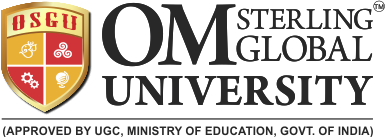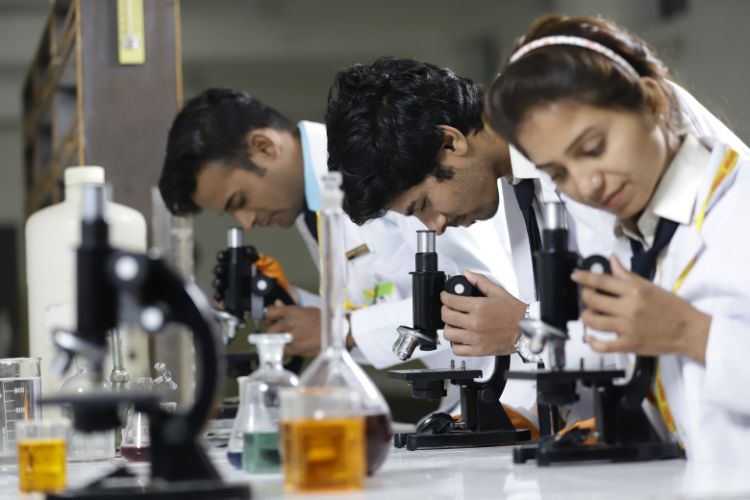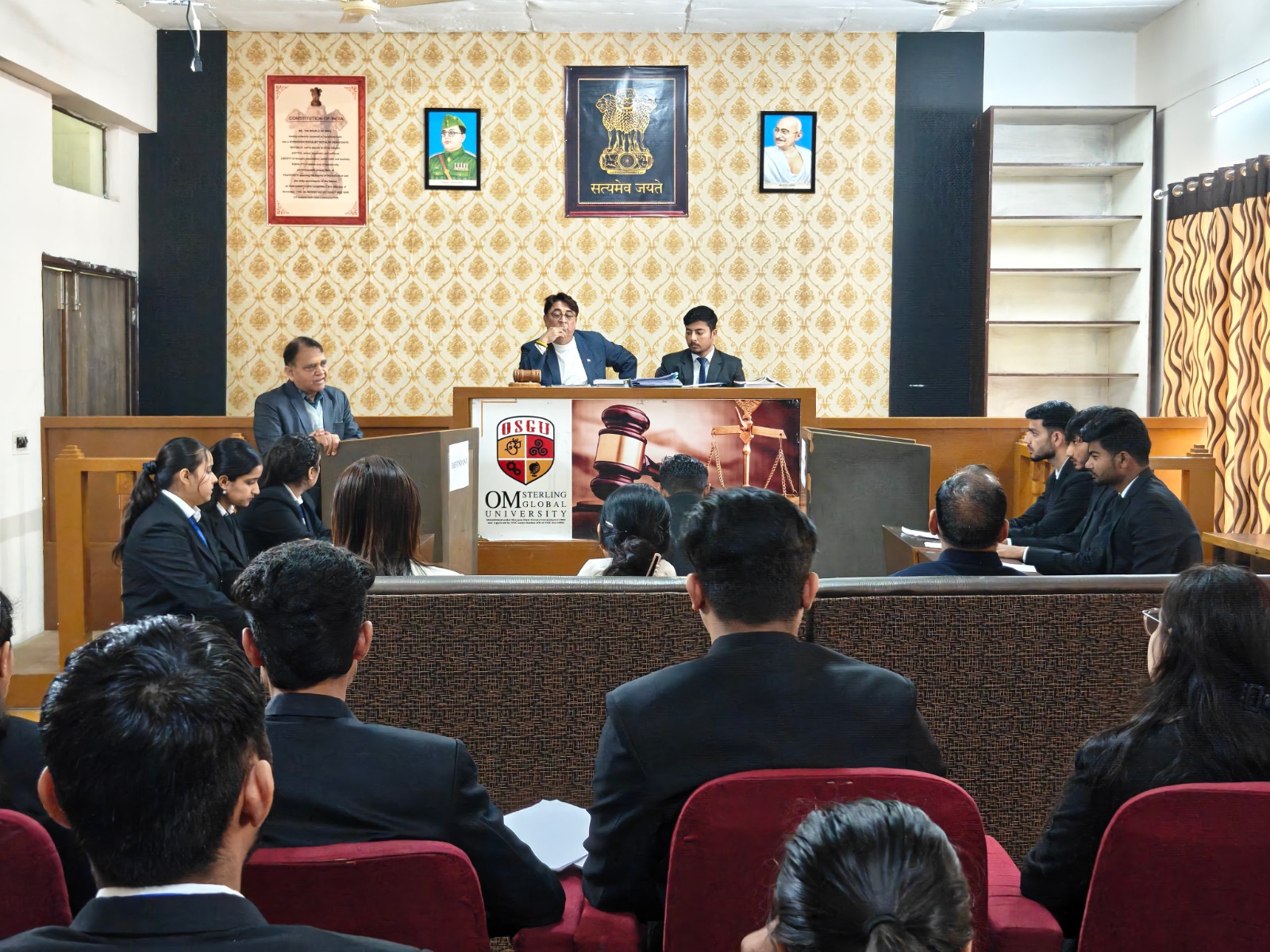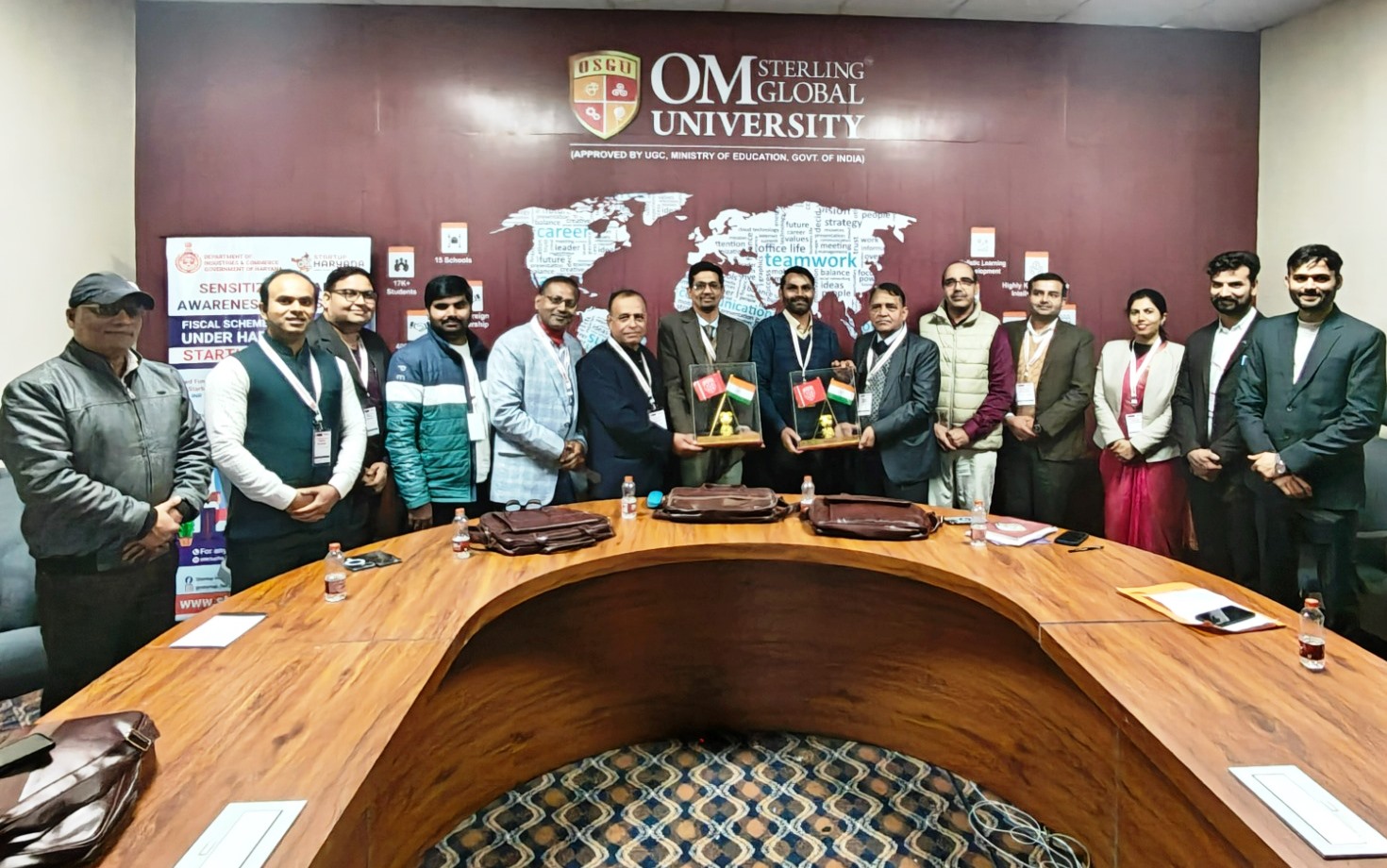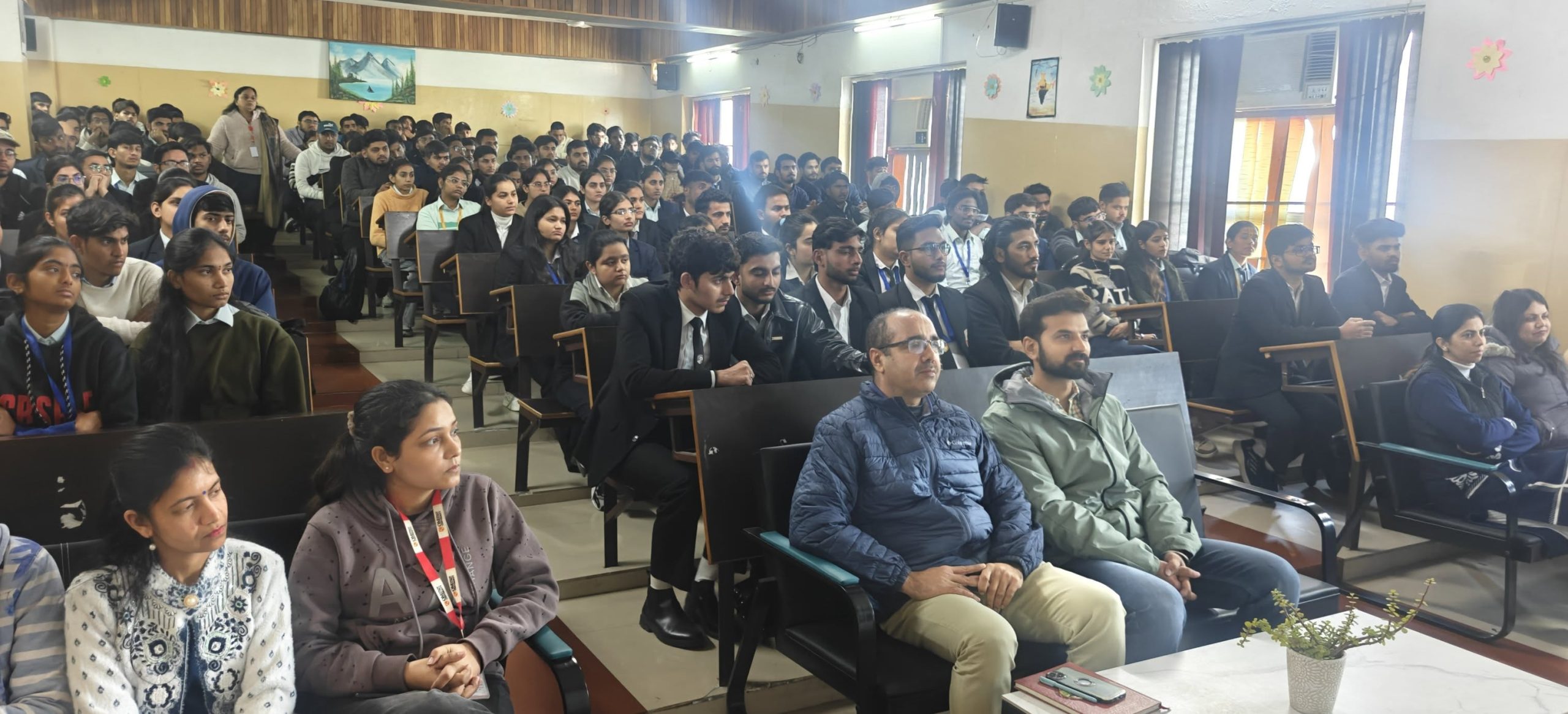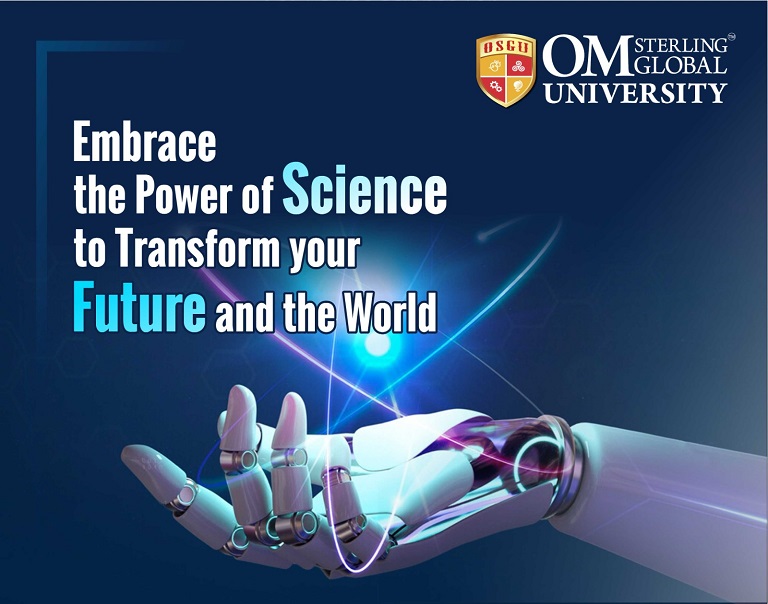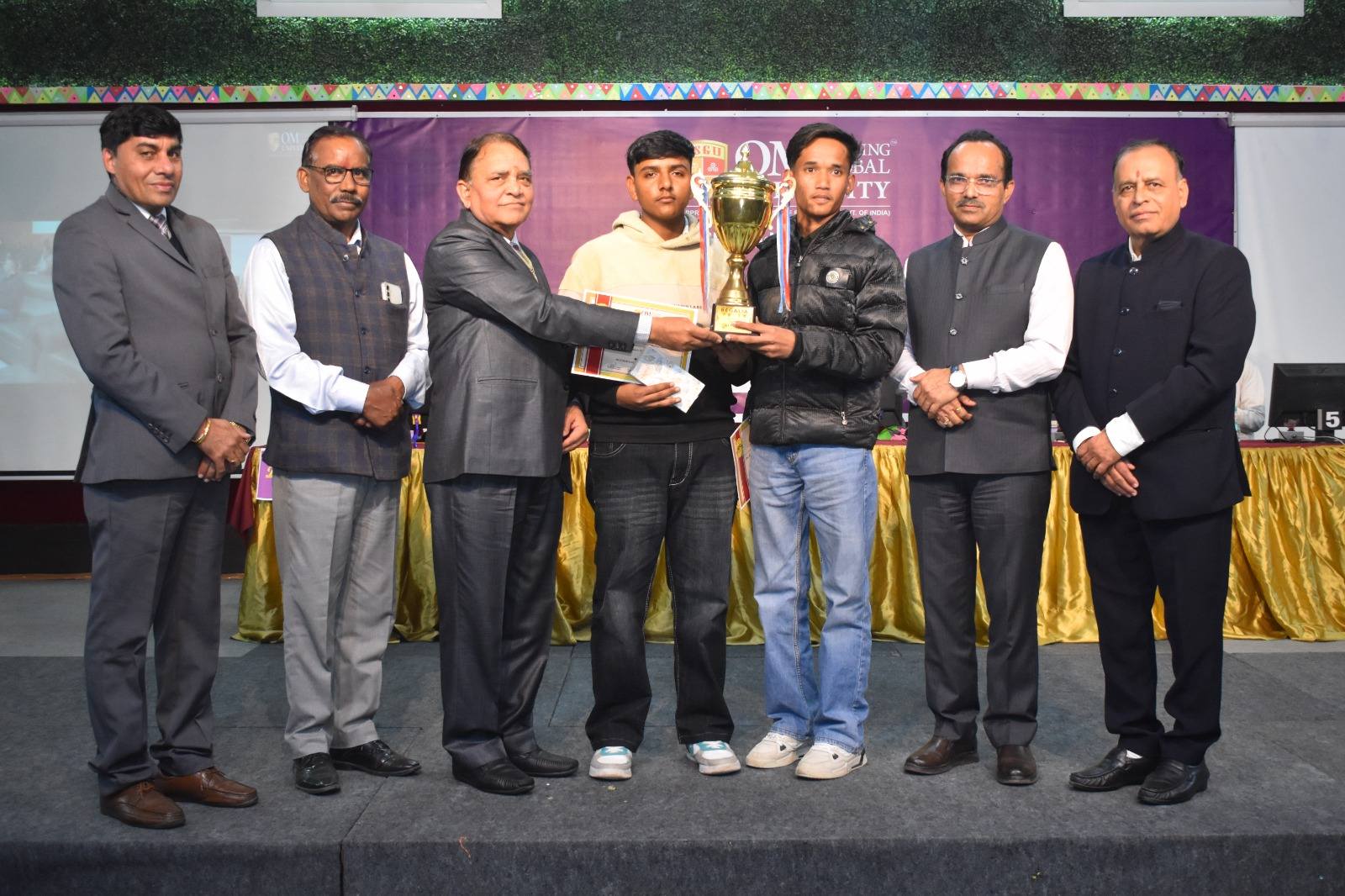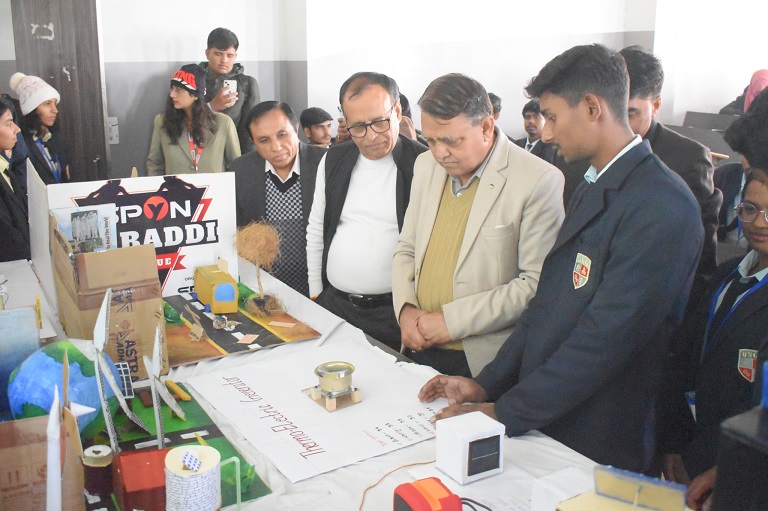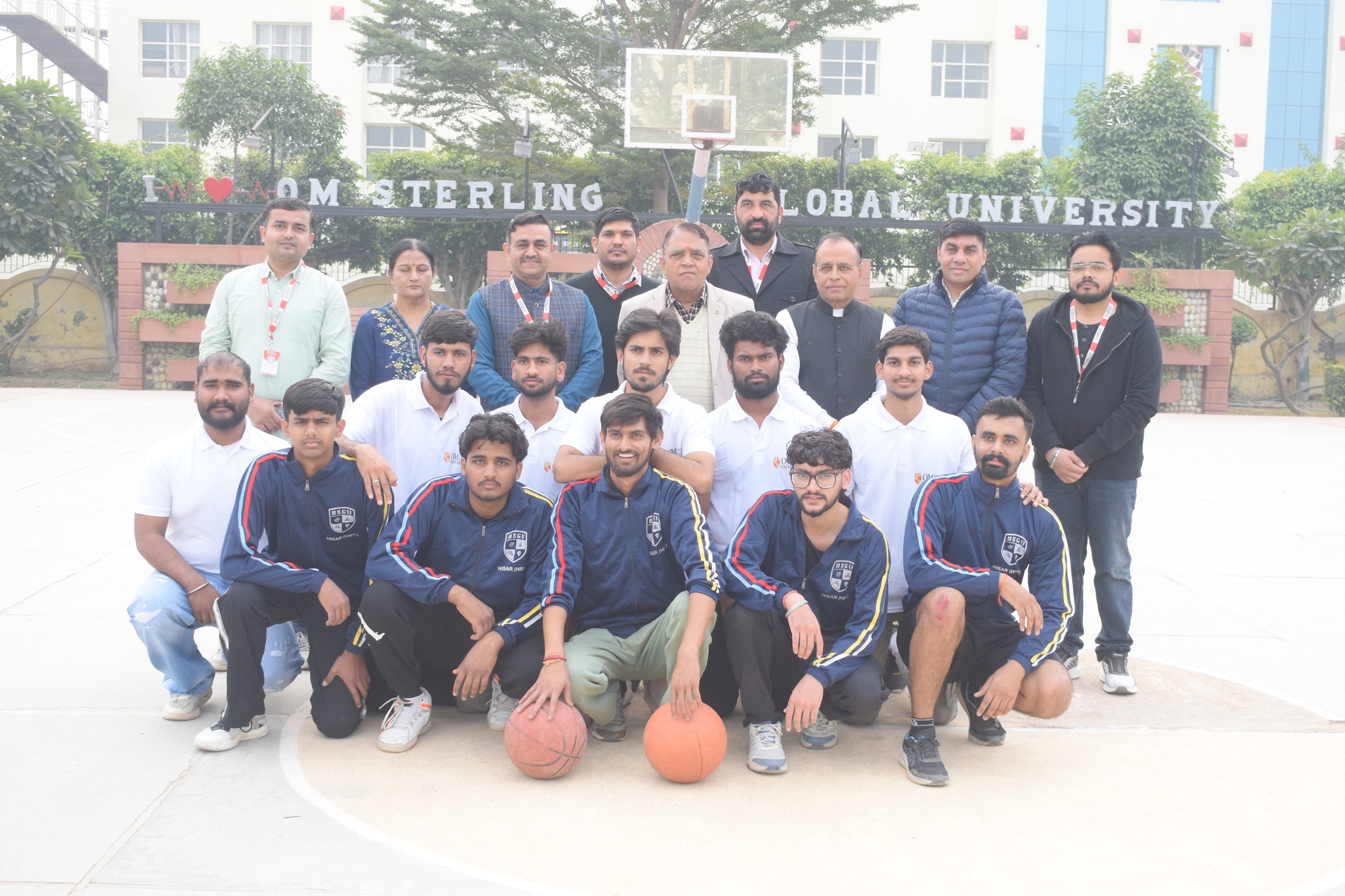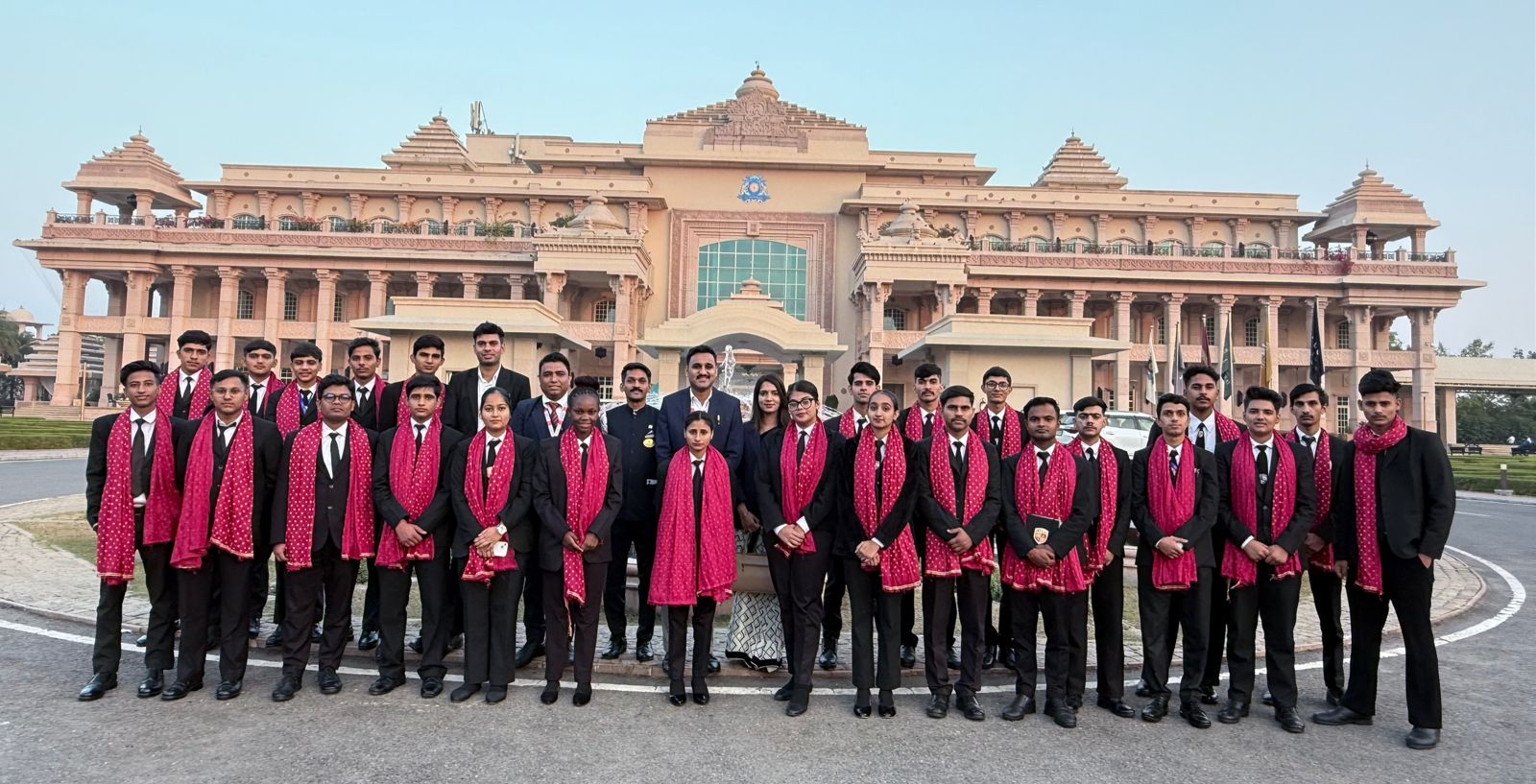
SAS-13

Post Graduation

2 Years
Programme Overview
The Master of Science (M.Sc.) in Physics is a two-year postgraduate program designed to provide an advanced understanding of the fundamental principles of physics, mathematical techniques, and experimental skills. This program emphasizes both theoretical knowledge and practical applications, preparing students for careers in research, academia, and various industries. The curriculum covers core areas such as Quantum Mechanics, Electromagnetic Theory, Classical Mechanics, Statistical Physics, Condensed Matter Physics, Nuclear Physics, and Computational Physics.
Through laboratory experiments, computational modeling, and research projects, students gain hands-on experience, enabling them to analyze and solve complex physical problems. The program fosters analytical thinking, scientific inquiry, and innovation, equipping graduates with the skills needed for cutting-edge research and technological advancements.
Programme Objectives
The M. Sc. in Physics degree programme at School of Applied Sciences (SAS), Om Sterling Global University, Hisar, has the following programme objectives.
- Provide an in-depth understanding of advanced physics concepts and their applications.
- Develop problem-solving, analytical, and computational skills for scientific research.
- Train students in modern experimental techniques and laboratory methods.
- Encourage independent thinking, scientific reasoning, and innovation.
- Strengthen the foundation for research in interdisciplinary areas of physics.
- Enhance communication and presentation skills for conveying scientific knowledge.
- Prepare students for careers in academia, research, and industry.
- Foster a lifelong learning mindset to adapt to evolving scientific advancements.
Programme Outcomes
Upon completion of the M.Sc. Physics program, graduates will be able to:
- Demonstrate advanced knowledge of physical principles and mathematical techniques.
- Apply analytical and computational methods to solve complex physics problems.
- Conduct independent research and contribute to scientific advancements.
- Use modern experimental techniques and data analysis tools effectively.
- Develop innovative solutions in areas such as material science, electronics, and nanotechnology.
- Pursue higher education (Ph.D.) or careers in teaching, research, and industry.
- Exhibit strong ethical and professional conduct in scientific and technological domains.
- Adapt to interdisciplinary fields such as quantum computing, medical physics, and renewable energy.
Career Path
Graduates of the M.Sc. Physics program have diverse career options in various sectors, including:
- Academia & Research: Pursue a Ph.D. and engage in scientific research in universities or research institutions like CSIR, ISRO, DRDO, BARC, and IITs.
- Government & Public Sector: Work in scientific organizations, space research centers, meteorology departments, or defence research.
- Industry & Technology: Opportunities in semiconductor industries, nanotechnology, optics, renewable energy, and electronics manufacturing.
- Healthcare & Medical Physics: Careers in radiation therapy, medical imaging, and biomedical instrumentation.
- Data Science & Computational Physics: Roles as data analysts, software developers, and AI specialists in tech companies.
- Education & Teaching: Become a lecturer, professor, or educator in schools, colleges, and coaching institutes.
- Entrepreneurship & Innovation: Start ventures in scientific instrumentation, technology consulting, or renewable energy solutions.
Eligibility Criteria
Minimum percentage and others criteria for admission will be as per UGC/ Concerned Regulatory Bodies.
Provided below are the criteria that need to be met for the given course.
For National Students
- A Bachelor’s degree in Physics or a related field (B.Sc. in Physics, Applied Physics, or a combination with Mathematics or Electronics) from a recognized university.
For International Students
- Rule framed by University Grants Commission (UGC) and notified in its website www.ugc.ac.in will be followed for deciding the eligibility and admission of International students to various courses offered in Om Sterling Global University, Hisar.
Programme Syllabus
The programme syllabus of M. Sc. in Physics has been made in such a way that it takes care of the holistic development of a student. Along with equal emphasis on theoretical and practical aspects of study; Om Sterling Global University also focuses on providing personality development classes along with communication and skills development classes; as these are a must in top colleges like us. With these programmes, a student can excel at any interview and can become a recruiter’s or an HR professional’s favorite candidate.
Semester I
| S.No. | Subject |
|---|---|
| 01. | Mathematical Physics-I |
| 02. | Classical Mechanics |
| 03. | Quantum Mechanics |
| 04. | Electronics-I |
| 05. | Physics Laboratory-I |
| 06. | Computational Physics-I |
Semester II
| S.No. | Subject |
|---|---|
| 01. | Mathematical Physics II |
| 02. | Statistical Mechanics |
| 03. | Relativistic Quantum Mechanics & Quantum Field Theory |
| 04. | Classical Electro dynamics |
| 05. | Physics Laboratory-II |
| 06. | Computational Physics II |
Semester III
| S.No. | Subject |
|---|---|
| 01. | Solid State Physics-I |
| 02. | Atomic & Molecular Physics |
| 03. | Nuclear Physics |
| 04. | Nano Physics (Special Paper) |
| 05. | Physics Laboratory-III |
| 06. | Physics Laboratory-IV |
| 07. | Seminar |
Semester IV
| S.No. | Subject |
|---|---|
| 01. | Solid State Physics-II |
| 02. | Particle Physics |
| 03. | Electronic-II |
| 04. | Physics Laboratory- V |
| 05. | Seminar |
| 06. | Dissertation |
How to Apply
You can fill-up the Admission Enquiry Form below if you have any queries regarding the admission procedure of M. Sc. in Physics. Now, if you are unable to decide on which programme to choose, feel free to reach out to us via the FREE tele-counseling option. If you have decided that you must pursue M. Sc. in Physics and start a highly rewarding career then go ahead and fill-up the Online Application now.

